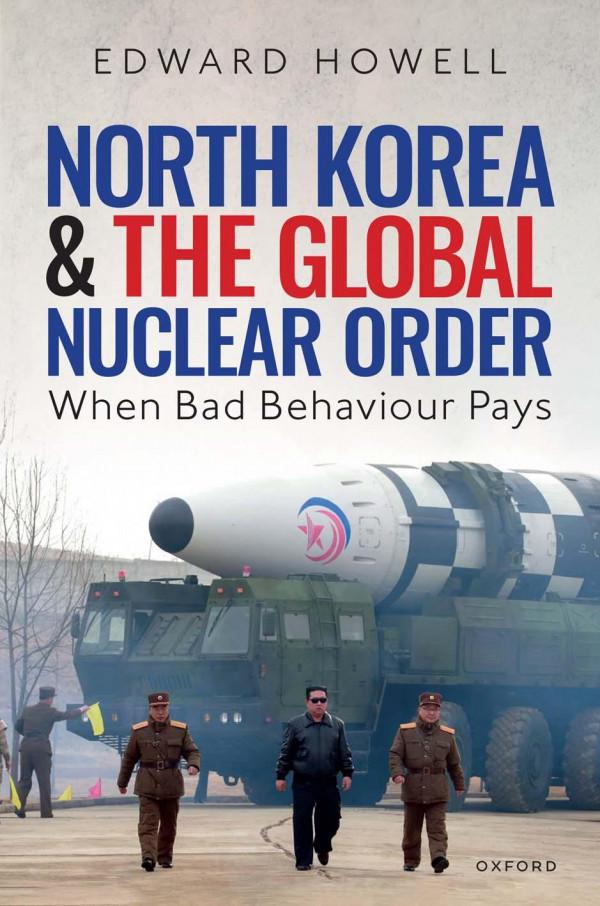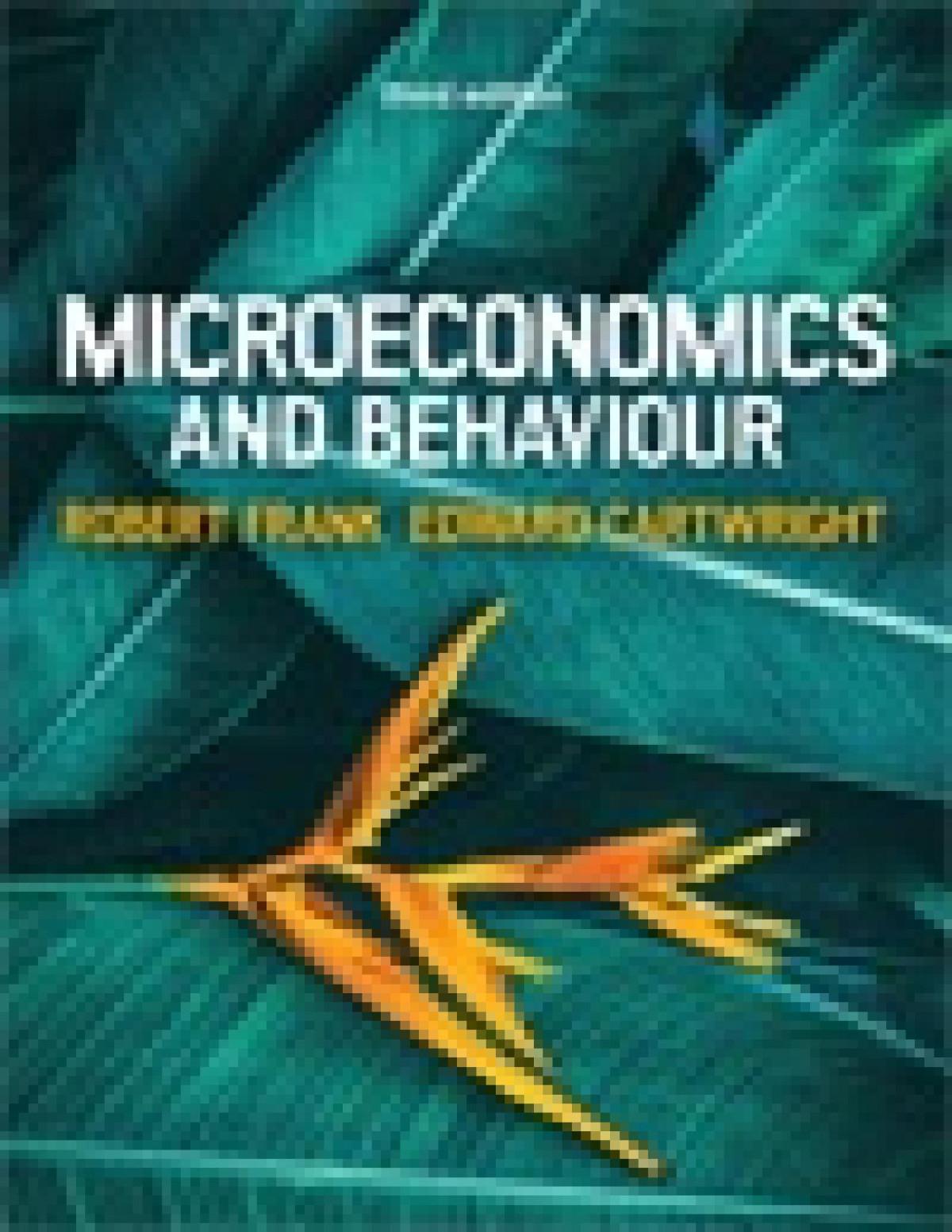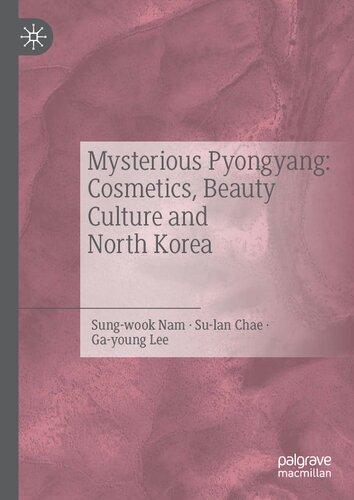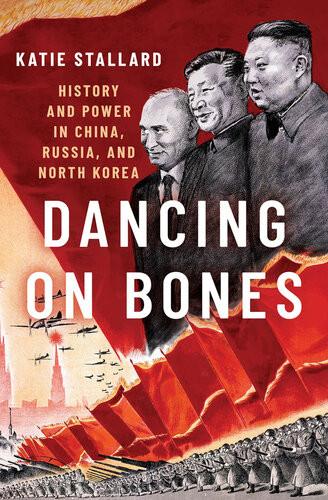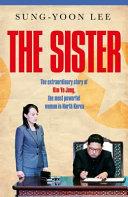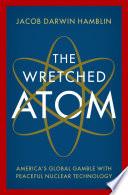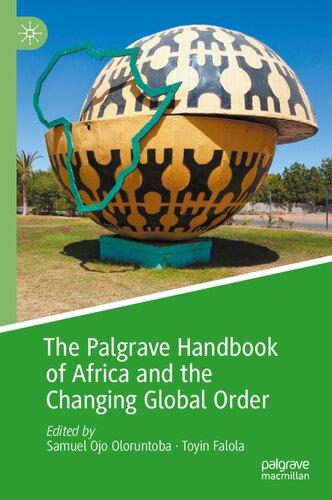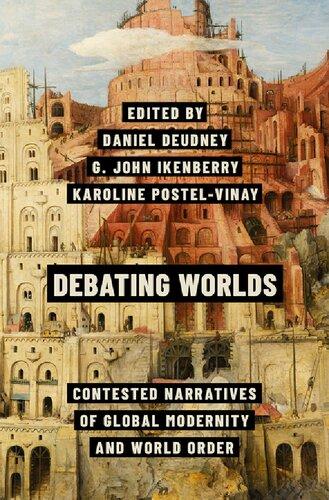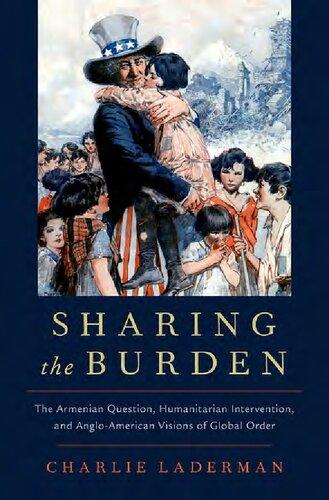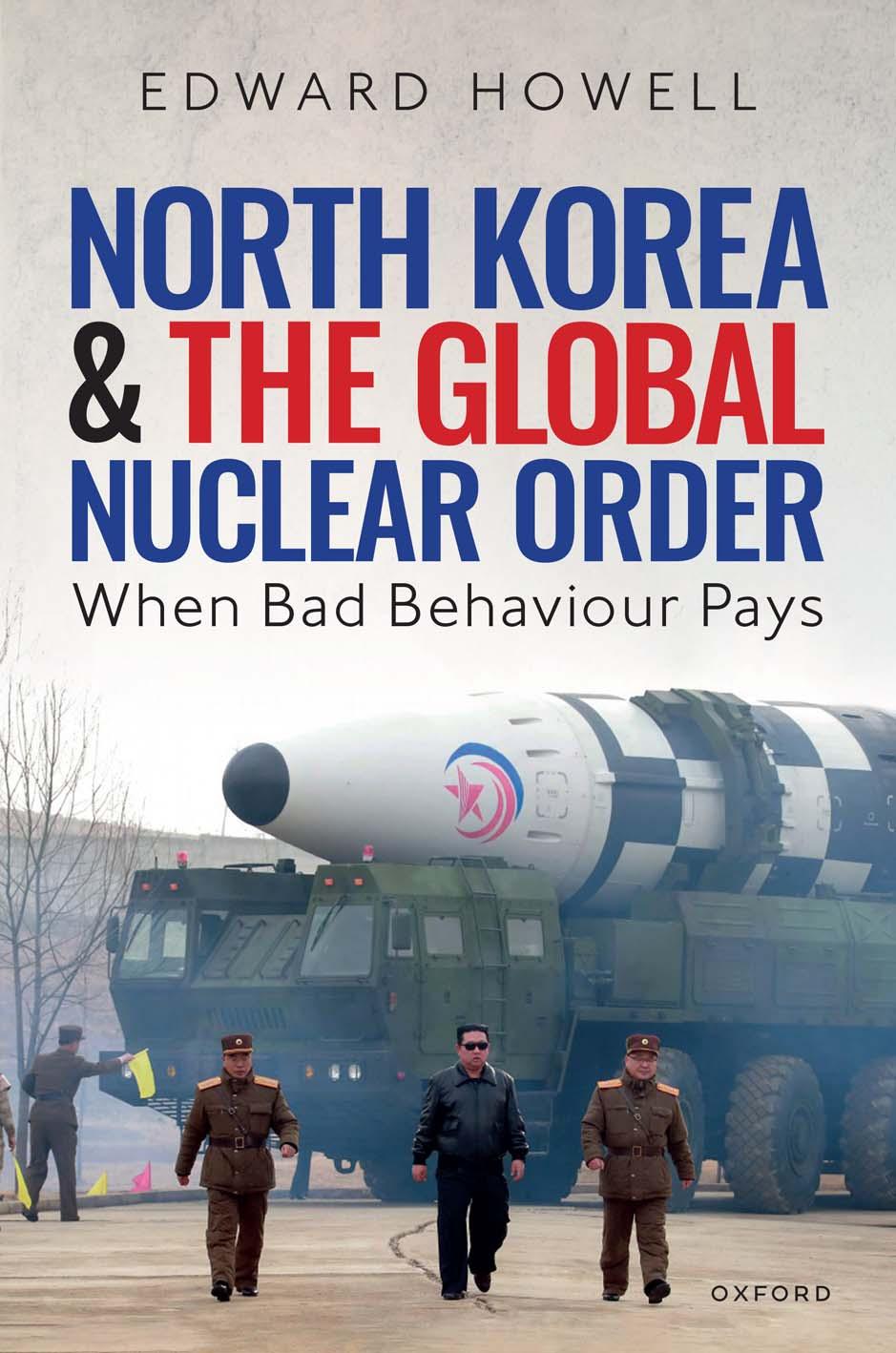Introduction
Whenbadbehaviourpays
ThetenthdayofOctoberisnoordinaryautumndayforNorthKoreaanditspeople. ItisoneofthethreemostimportantholidaysoftheNorthKoreancalendaryear, alongwiththebirthdayofthefounderofthenation,theEternalPresidentKimIl Sung(15April),andthatofhissuccessor,theso-called‘DearLeader’ofKimJong Il(16February).Thedateof10Octobermarksthefoundingofthepredecessorto whatistodaycalledtheWorkers’PartyofKorea,therulingpartyofNorthKorea. Theseventy-fifthanniversaryofthisauspiciousoccasionwaswidelyexpectedtobe adayofespecialjubilation.TheParty,thealphaandomegaofNorthKoreanpolitics andsociety,hadreachedamilestoneanniversary.Theseoccasionsarefrequentspectaclestargetingdomesticandinternationalaudiences,oftenfeaturingparadesofthe state’slatestnuclearweaponry,missiles,andmilitaryequipmentandspeechesfrom theleader.Theyear2020alsomarkedseventyyearssincethecommencementofthe KoreanWar,awar,which,sotheNorthKoreannarrativegoes,sawtheUnitedStates admitits‘ignominiousdefeatforthefirsttimeinhistory’.1
Asthepitch-blackskyloomedoverKimIlSungSquareinPyongyang,duringthe earlyhoursofthemorning,however,thecelebrationsof10October2020wouldbe somewhatmoresubdued.Thecoronaviruspandemicwasravagingacrosstheglobe, andNorthKoreawasfarfromimmunetoitsimpacts.Asitseconomysufferedcataclysmically,asurprisinglyemotionalKimJongUnrosetothepodiumandpleaded withhispeople.Strugglingtocontainhistears,theSupremeLeaderapologizedfor havingfailedtoprovidehispledgeddomesticeconomicdevelopment.Hethanked themilitaryfortheirassistanceineffortstorecoverfromfloodingandthepandemic andexpressedhisgratitudetothepeopleforplacingtheirtrustintheParty,like allNorthKoreanshavebeentoldtodo.ForallKimJongUn’slaments,therewas onenoticeablesight.RollingthroughKimIlSungSquarewastheworld’slargest road-mobileintercontinentalballisticmissile(ICBM),the Hwasong-17.ThismissilewasfarlargerandmorepowerfulthanpreviousICBMs.The Hwasong-15,tested inNovember2017,hadthecapacitytostrikethecontiguousUSmainland.2Given
1RodongSinmun,‘MonthofSolidaritywithKoreanPeopleClosesinCuba’,11August2017.
2NorthKoreahascodenamedseveralofitsshort,intermediate,andlong-rangemissileswiththename Hwasong,whichcanbetranslatedas‘Mars’,or,literally,‘firestar’.Thisparticularmissile,whilstinitially— andpresumptively—codenamed Hwasong-16 byinternationalobservers,becamemorecommonly,and officially,knownas Hwasong-17 NorthKoreaandtheGlobalNuclearOrder.EdwardHowell,OxfordUniversityPress.©EdwardHowell(2023). DOI:10.1093/oso/9780192888327.003.0001
itssheersizeandweight,the Hwasong-17’seffectivenessremainsquestionable.3 Nevertheless,NorthKoreawassendingaclearmessagetoitspeopleandtheworld. DespitethetollofthecoronaviruspandemicontheNorth’seconomy(andmoreon that,laterinthebook),onethingwasclear:NorthKoreawasnotgettingridofits nuclearweaponsjustyet.
∗∗∗
ThisbookasksthefundamentalquestionofhowNorthKoreahasbecomeanucleararmedstateandhowwemightaccountforitsnuclearbehaviouroverthepastthirty years.TheDemocraticPeople’sRepublicofKorea(DPRK/NorthKorea)maynot berecognizedasanuclearstatebytheinternationalcommunityandnuclearnonproliferationregime.Nevertheless,despiteadireeconomicsituationandpolitical isolationism,ithasmanagedtoacquiresignificantnuclearandmissilecapabilities sincetheendoftheColdWar.Thisisastatethathasunabashedlybrokeninternationalnormsandrulesofstatebehaviour,bothpertainingtothehumanrightsofits peopleandthroughitsunwaveringpursuitofnuclearweapons.Itisnosurprisethat NorthKoreahasgarneredareputationastheposter-childofdelinquencyininternationalrelations,astatewhosebehaviourwasoncedescribedbyformerUSSecretary ofState,HillaryClinton,asakintothatofan‘unrulyteenager[...]seekingattention’.⁴ Morerecently,threesummits,numerousmissivesbetweenKimJongUnandDonaldTrump,andamarkedaccelerationintheDPRK’snuclearandmissilecapabilities haveonlyplacedthestatefurtherinthegloballimelight.Yet,NorthKoreashowslittledesiretoabandonits‘treasuredsword’ofnuclearweaponsanytimesoon.⁵Asthe threattoregionalandglobalsecurityposedbyanuclearNorthKoreacontinuesto grow,therehasneverbeenamorepressingtimethanthepresenttounderstandthe natureof,andmotivationsbehind,itsactions.
InofferingacomprehensiveaccountofNorthKorea’snuclearbehaviourover time,thisbookaimstoanswerthreequestions.HowmightweunderstandNorth Korea’spursuitofnuclearweapons?WhatdelinquentbehaviourhasNorthKorea deployedovertimeinrelationtoitsnuclearambitionsandbeyond?Whathavebeen theoutcomesofsuchdelinquency?Inansweringthesequestions,thisbookmakes theoverarchingargumentthatforNorthKorea,delinquentbehaviourcanbring, andhasbrought,pay-offs.First,itcontendsthatNorthKorea’snuclearambitions, overtime,havebeen—andremain—partandparcelofagreaterdesireforstatus withintheinternationalcommunity.Second,NorthKorea’sengagementindelinquentbehaviourhasbeenfarfromirrational:rather,ithasbeenstrategic.Through pioneeringtheframeworkof‘strategicdelinquency’,thisbookexploresthecircumstancesunderwhichdelinquentbehaviourhasallowedNorthKoreatogainbeneficial outcomes,thetypesofbehaviourinwhichNorthKoreahasengaged,andthebenefits andcostsithasgained.NorthKoreahaslearntthatalthoughbreakinginternational
3MichaelElleman,‘DoesSizeMatter?NorthKorea’sNewestICBM’, 38North,21October2020;Joost OliemansandStijnMitzer,‘ATitanamongTrucks:WhatNorthKorea’s“monster”Hwasong-16TELReally Means’, NKPro,20November2020.
⁴ Reuters,‘ClintonLikensNorthKoreatoUnrulyChildren’,20July2009.
⁵ RodongSinmun,‘DPRK’sNuclearDeterrenceIsTreasuredSwordofNation’,29June2017.
norms—notleastofnuclearnon-proliferation—mayinitiallyloweritsinternational reputationandstatus,itcanalsoreaprewardsinsodoing.
What,therefore,isstrategicdelinquency?Inbrief,strategicdelinquencyrefers tothecalculatedexerciseofdelinquent—andattimescompliant—behaviourwith respecttointernationalnormstoreappay-offs,evenifdelinquentbehaviourmay initiallylowerastate’sinternationalstanding.Foranactiontobeconsidereddelinquent,itmusttransgressestablishednormsandconventionsofbehaviourthatare acceptedaslegitimatewithinaparticularsocietyororder.Withininternationalsociety,scholarshipsuggeststhatdominantnormsaresetbythoseactorswiththegreatest materialpowerandhighestsocialstatus.Inturn,thesenorms,ofwhichnuclear non-proliferationisone,becomeintersubjectivelyacceptedasdominantbyother powers.⁶
InsheddinglightonNorthKorea’sstrategicdeploymentofbadbehaviour,this bookadoptsaNorthKorea-centricworldviewasitsstartingpoint.Pyongyang’s actionsareinextricablyrelatedtoitshistoricallyconstructedunderstandingofthe internationalenvironmentinwhichitissituated.OnlybyunderstandinghowNorth Koreaconceptualizestheworldarounditcanwegainaricheraccountofhowit understandsideasofstatusintheglobalnuclearorderandbroaderinternational orderandhowitbehavesinresponsetoitsstatuspositionwithrespecttoitsnuclear ambitions.Bydrawinguponfirst-handinterviewswithinternationalnegotiators withtheDPRKandeliteandnon-eliteNorthKoreandefectors,thisbooksheds lightonhowNorthKoreahasunderstood—andcontinuestounderstand—itsprized possessionofitsnuclearprogrammeandhowithasbehavedinresponse.
ForNicholasMillerandVipinNarang,‘accordingtomosttheoriesofnuclear proliferation,NorthKoreadidnotstandmuchofachanceofsuccessfullyacquiringnuclearweapons.Asaneconomicallybackward,neopatrimonialregimesubject tothethreatofpreventivestrikesandwar,NorthKoreashouldhavefailed.’⁷Yet, NorthKoreahasdefiedtheseodds.Ratherthan‘failing’,ithasbeenableto‘muddle through’.⁸Inthefaceofrepeatedinternationalcondemnationforitsbehaviourand changesinthegeopoliticalenvironmentcatalysedbythecollapseandreformofits ColdWarpartners,NorthKoreahascontinuedtobehaveinwaysthatdivergefrom thenormsofexpectedstatebehaviourininternationalrelations.Seventeenyears beforeheenteredtheOvalOffice,DonaldTrump—writingin2000—assertedhow ‘NorthKoreaexportsexactlyonethingtotherestoftheworld—trouble.’⁹Such
⁶See,e.g.GerrySimpson,GreatPowersandOutlawStates:UnequalSovereignsintheInternationalLegal Order (Cambridge:CambridgeUniversityPress,2004);IanClark,‘InternationalSocietyandChina:The PowerofNormsandtheNormsofPower’, ChineseJournalofInternationalPolitics,7(3),2014,315–40;Pu Xiaoyu,‘SocialisationasaTwo-WayProcess:EmergingPowersandtheDiffusionofInternationalNorms’, ChineseJournalofInternationalPolitics,5(4),2012,341–67;BarryBuzan, TheUnitedStatesandtheGreat Powers:WorldPoliticsintheTwenty-FirstCentury (Cambridge:Polity,2004).Forarealistperspective onhowinternationalorderisonlylegitimateonceitsnormsareacceptabletogreatpowers,seeHenry Kissinger, AWorldRestored (London:Gollancz,1977).
⁷NicholasL.MillerandVipinNarang,‘NorthKoreaDefiedtheTheoreticalOdds:WhatCanWeLearn fromItsSuccessfulNuclearization?’, TexasNationalSecurityReview,1(2),2018,59.
⁸MarcusNolandusesthistermtodescribetheDPRK’ssurvivalthroughoutthefamineofthe1990s. SeeMarcusNoland,‘WhyNorthKoreaWillMuddleThrough’, ForeignAffairs,76(4),July/August1997, 105–18.
⁹DonaldJ.Trump, TheAmericaWeDeserve (NewYork:StMartin’sPress,2000),125.
‘trouble’—uponwhichTrumpwouldcapitalizeaspresident—hasonlyworsened sincetheturnofthecentury.How,therefore,mightweunderstandtheDPRK’s behaviour?
NorthKorea:Theknownunknown
Sinceitsinceptionin1948,NorthKoreahasbeenanobjectoffascinationandfrustrationforscholarsandpolicymakers.Itisaregime-stateaboutwhichsolittleis known.1⁰EveryoneseemstohaveanopinionastohowandwhytheDPRKbehavesin thewayitdoes,symptomaticofthelackofinformationemanatingfromtheregimestate.Claimssuchas‘NorthKoreaonlywantstosurvive’;it‘wantsnuclearweapons toavoidawarwiththeUnitedStates’,or‘NorthKoreawantstobeintegratedinto theinternationalcommunitytoboostitseconomy’arealltoocommon.Whilstthese claimsareall,todifferingextents,true,theyoverlookafundamentalexplanationfor theDPRK’sbehaviour,namely,status.Suchanexplanationisvitaltounderstandingwhy,inthetwenty-firstcentury,thisunderdevelopedcountrywithaneconomy thirtytimessmallerthanitssoutherncounterpart,continuestobehaveasifwaron theKoreanPeninsulaisimminent.
Inastrikinglydisparaging—thoughnotincorrect—assessmentoftheDPRK,the essayistChristopherHitchensoncedescribedtheNorthKoreanpeopleas‘livingin thedark,keptinperpetualignoranceandfear,brainwashedintothehatredofothers, regimentedandcoercedandinculcatedwithadeathcult’.11Overtheyears,North Koreahasbeenbestowedwithcountlesslabelsacrossscholarship,policymaking,and popularperceptions,whethera‘hermitkingdom’,a‘rogue’state,oranoutliertothe internationalcommunity,tonamejustafew.Theselabels,however,onlyshedlighton averysmallpartoftheenigmathatistheDPRK.Referringtoitsnuclearprogramme, formerUSSecretaryofState,GeorgeShultz,remarkedin2018how‘NorthKoreais asmall,poorcountry,andithassomeawesomepower.’12Bypayingattentiontohow thiscountryhasbehavedinwaysthatbreakinternationalnormsaspartofaquest forinternationalstatus,abetterunderstandingofthemotivationsbehinditsnuclear behaviourcanbegleaned.
NorthKorea:Ahistoryofdelinquency
Writingin1970,Chong-sikLeeandNam-sikKimdescribedtheDPRKas‘oneof themostefficienttotalitarianregimesexistingintheworldtoday’whereby‘through
1⁰Throughoutthisbook,theauthorreferstoNorthKoreaasa regime-state,givenhowthesurvivalof theregimeandthestateremainintimatelylinked,and,notably,theclosetetheringoftheregimeandthe stateincultivatingdomesticsupportanddirectingforeignpolicy.SeeEdwardHowell,‘ThejucheH-bomb? NorthKorea,NuclearWeaponsandRegime-StateSurvival’, InternationalAffairs,96(4),2020,1051–68.
11ChristopherHitchens, Arguably:Essays (London:AtlanticBooks,2012),558.
12 Bloomberg,‘GeorgeShultzSees“DifferentAttitude”fromNorthKorea’,7May2018,availableat: https://www.bloomberg.com/news/videos/2018-05-06/george-shultz-sees-different-attitude-fromnorth-korea-video (accessed19December2022).
purges,systematicpurificationcampaigns,indoctrination,andstreamliningof organizations,KimIl-songhasbeenabletoplacethetwelvemillionpeopleinNorth Koreaundertightcontrol’.13Overfiftyyearslater,NorthKoreamayhaveevolved intowhattheWorkers’Partybombasticallydescribesasa‘full-fledgednuclearstate’ ofnearly26millioninhabitants,butLeeandKim’sdescriptionstillresonates.1⁴The DPRKhasearnedareputationastheepitomeofdelinquencyanddoesnotseemto showremorsefordefyinginternationalnorms.Itshumanrightsrecordisoneofthe worstintheworld.TheFreedomHouseIndexrankstheregime-state205thoutof atotalof210countries,regardingpoliticalrightsandcivilliberties,aheadonlyof Turkmenistan,Eritrea,SouthSudan,Syria,andTibet.1⁵Thetotalitarianregimehas gainednotorietyforexertingoppressiveideologicalandphysicalcontroluponits ownpeopleandevenuponcitizensofothercountries.Itsegregioushumanrightsviolationshavebeenharrowinglyrecountedbydefectorsandcorroboratedbyadamning UNCommissionofInquiryReportin2014.1⁶Theimprisonmentandbeatingof USstudent,OttoWarmbier,whilstvisitingPyongyangin2016—andhissubsequent death—isoneofmanyindictmentsoftheNorth’sgrossbreachingofhumanrights norms.
Meanwhile,theDPRKhashithertoconductedsixnucleartestsandcopiousmissile launches.Atthetimeofwriting,speculationpervadesastowhenaseventhnuclear testwilloccur.NotonlyhasNorthKoreaacceleratedthescopeandsophistication ofitsnuclearandmissiledevelopmentovertime,butalsoitsself-confidenceinits statusas‘afull-fledgednuclearpowerthathasbeenpossessedofthemostpowerfulinter-continentalballisticrocketcapableofhittinganypartoftheworld’has bolstered.1⁷Moreover,astagedeventaspartofa2020documentary, TheMole,by Danishfilmdirector,MadsBrügger,revealedthestartlingrealityofNorthKorea’s desirestoengageinclandestinetradeofnucleararmsandmethamphetaminein exchangeforsmuggledoil.1⁸Beyonditsnuclearaspirations,NorthKoreahasinfiltratedcyberspace.WhocanforgetwhenNorthKoreaorchestratedcyberattackson SonyPicturesin2014,inresponsetothereleaseofthecomedy,TheInterview—aparodyofKimJongUn—orontheUnitedKingdom’sNationalHealthServicesystem,
13Chong-sikLeeandNam-sikKim,‘ControlandAdministrativeMechanismsintheNorthKorean Countryside’, JournalofAsianStudies,29(2),1970,309.
1⁴See,e.g.KCNA(KoreanCentralNewsAgency),‘WPK’sLineonSimultaneouslyCarryingonEconomic Construction,BuildingofNuclearForcesIsJustifiable’,3April2014;PyongyangTimes,‘Self-Development, KeytoVictoryandGlory’,22January2016.
1⁵FreedomHouse,‘2022CountriesandTerritories’,availableat: https://freedomhouse.org/countries/ freedom-world/scores?sort=asc&order=Total%20Score%20and%20Status (accessed6January2023).
1⁶OneoutstandingaccountofNorthKorea’shumanrightsviolationsisSandraFahy, DyingforRights: PuttingNorthKorea’sHumanRightsAbusesontheRecord (NewYork:ColumbiaUniversityPress,2019).
1⁷KimJongUnmadethisclaimfollowingthetestoftheDPRK’sfirstICBMon4July2017: KCNA, ‘ReportofDPRKAcademyofDefenceScience’,4July2017.
1⁸BBC, TheMole,availableat: https://www.bbc.co.uk/programmes/p08tqd6q (accessed17August 2022).ForanalysisonNorthKorea’sclandestinetradenetworks,seeSheenaChestnut,‘IllicitActivityandProliferation:NorthKoreanSmugglingNetworks’, InternationalSecurity,32(1),2007,80–111; DavidL.Asher,‘TestimonyofDavidL.Asher,InstituteforDefenseAnalysis’,at‘NorthKorea:Illicit ActivityFundingtheRegime’,HearingbeforetheFederalFinancialManagement,GovernmentInformation,andInternationalSecurityCommittee,109thCongress,2ndsession,25April2006,available at: https://www.govinfo.gov/content/pkg/CHRG-109shrg28241/htl/CHRG-109shrg28241.htm (accessed 19December2022).
threeyearsafterwards?Morerecently,inMarch2022,over$600millionenteredinto thecoffersoftheregimefollowingaNorthKoreancyber-heistonthenon-fungible token-basedvideogame,AxieInfinity.1⁹WithKimJongUnintentonmaintaining hisgriponpower,evenmembersofhisownfamilyhavenotbeenimmunefrom theconsequencesofhisactions:theregime-orchestratedassassinationofKim’shalfbrother,KimJongNam,withVXnerveagentinKualaLumpurAirportin2017adds tothelitanyofexamplesofNorthKorea’spenchantfordelinquency.
Engaginginfinanciallyandsociallycostlynuclearandmissiledevelopmentoutsideofthenon-proliferationregime;illicittradeinarmsanddrugs;chemical weaponsattacksandcyberattacks;and,insodoing,evadingunilateralandmultilateralsanctionswouldbea‘cocktailofhamartia’foranystate.2⁰However,North Koreahascontinuedtopursueitsnuclearaspirationsunderthematerialconstraints ofsanctionsandsocialconstraintsofaloweringofitsstatussuchthatsomescholars haveconcluded,notunrealistically,thatwemustlearntolivewithanuclearNorth Korea.21Howhasitbeenabletodoso,andwhatoutcomeshaveensued?
Ininternationalrelations,statebehaviourthatbreachesinternationalnormsis oftendeemedtobeirrationalandemotionallycharged.TheUnitedStates,asthe globalhegemon,hasbeensubjecttoconsiderablescrutinyinthisvein,withthe GlobalWaronTerroraftertheterroristattacksof11September2001beingjust oneexample.22Yet,despitegrowingscholarshipontheroleofemotionsinforeign policydecision-making,23inadequateattentionhasbeenpaidtotheactionsof‘rogue’ regimes.WithrespecttoNorthKorea,asAndreiLankovargues,althoughKimJong Un’sbehaviourmaybeunpredictable,theregime‘isjusttakinglogicalactionsto survive’.2⁴Thisbooklooksatonesuchfarfromirrationalaction:the strategic deploymentofdelinquentbehaviourwithrespecttotheglobalnuclearorderandthewider internationalorder.
StudyingNorthKorea
WithinthedisciplinesofInternationalRelationsandPoliticalScience,scholarshipon NorthKoreaanditsnuclearprogrammehasfrequentlyconcernedtherolesofdeterrence,thesecuritydilemma,andrationalactorbehaviour,whichgainedpopularityin
1⁹EdwardHowell,‘HowNorthKorea’sCryptoHackersAreFundingKim’sMissileHabit’,TheSpectator, 26April2022.
2⁰WiththankstoAlexFleming-Brownforthisaphorism.
21AndreiLankov,‘WhytheUnitedStatesWillHavetoAcceptaNuclearNorthKorea’, KoreanJournal ofDefenseAnalysis,2(3),2009,251–64;TobyDalton,‘OnNorthKorea’,CarnegieEndowmentforInternationalPeace,9September2020,availableat:https://carnegieendowment.org/2020/09/09/on-north-koreapub-82524 (accessed19December2022).
22See,e.g.ChristianReus-Smit,‘InternationalCrisesofLegitimacy’, InternationalPolitics,44,2007, 157–74.
23See,e.g.KerenYarhi-Milo, WhoFightsforReputation:ThePsychologyofLeadersinInternational Conflict (Princeton,NJ:PrincetonUniversityPress,2018);ToddH.Hall, EmotionalDiplomacy:Official EmotionontheInternationalStage (Ithaca,NY:CornellUniversityPress,2016).
2⁴AndreiLankov,‘KimJongUnIsaSurvivor,NotaMadman’, ForeignPolicy,26April2017.
theimmediatepost-ColdWarera.2⁵Yet,theargumentthatnuclearweaponsallowthe DPRKtosustainitsregimethroughmaintainingdeterrenceagainsttheUnitedStates providesonlyapartialunderstandingoftheDPRK’sbehaviouranditsdomesticand foreignpolicygoals.Whystatesbehavedelinquentlyhavingacquiredweaponized nuclearcapabilitiesremainsunconsidered,especiallyifnuclearpossessionbrings bothsecurityandinsecurity,togetherwitharangeofsocialandmaterialcosts,to thepossessor.
Ofcourse,NorthKoreavaluesdeterrenceand,importantly,regimestabilityand survival,butcentraltoNorthKorea’sbehaviourishowitorderstheworldarounditin socialandmaterialterms.NowhereisthismoreclearlyseenthanintheDPRK’sconstructionoftheUS‘hostilepolicy’asacoreideologicalprismthroughwhichitframes itsexternalenvironment.Understandingthenuclearorder—andwiderinternational order—intermsof‘howsocialkindsareputtogether’,asAlexanderWendthighlights,especiallythe‘socialkind’oftheNorthKoreanregime-state,offersahelpful complementtoexistingapproachesfocusingondeterrenceandsecurity.2⁶
Beyondsecurityconcerns,scholarshiponwhysomestateschoosetonuclearize anddefythenon-proliferationnormhasfocusedondomesticeconomicinterests,2⁷ roleidentityfactors,2⁸theallureofincentives,2⁹andcognitivefactors.3⁰Withinthe academicdisciplineofInternationalRelations,theoreticalapproachesinlinewith theEnglishSchoolandsocialconstructivismhaveextensivelyunderscoredhowthe socializationpressuresofinternationalsocietymayinducestatestocomplywith dominantnorms,suchasofnuclearnon-proliferation,giventhestatusvalueofbeing recognizedasanorm-abidingactor.31However,NorthKoreahasdonepreciselythe opposite.Justwhatexistingscholarshipoverlooksis how delinquencyhasbecomea responseforNorthKoreaagainstitsself-inflictedpositionofmarginalizationwithin internationalsocietyandhow,throughdelinquentbehaviour,ithassought—and obtained—benefits.
ThereremainsawealthofliteratureanalysingNorthKorea’sbroaderdomestic andforeignpolicies,whichcomprisesanalysisofitsnuclearprogramme,human
2⁵BenjaminFrankel,‘TheBroodingShadow:SystemicIncentivesandNuclearWeaponsProliferation’, SecurityStudies,2(3–4),1993,37–78;ZacharyS.DavisandBenjaminFrankel,eds,TheProliferationPuzzle: WhyNuclearWeaponsSpreadandWhatResults (London:FrankCass,1993);JohnM.Deutch,‘TheNew NuclearThreat’, ForeignAffairs,71,1992,120–35;JohnJ.Mearsheimer,‘BacktotheFuture:Instabilityin EuropeaftertheColdWar’, InternationalSecurity,15(4),1990,5–56.
2⁶AlexanderWendt,‘OnConstitutionandCausationinInternationalRelations’,ReviewofInternational Studies,24(5),1998,103.
2⁷EtelSolingen, NuclearLogics:ContrastingPathsinEastAsiaandtheMiddleEast (Princeton,NJ: PrincetonUniversityPress,2007).
2⁸JacquesE.C.Hymans, ThePsychologyofNuclearProliferation:Identity,Emotions,andForeignPolicy (Cambridge:CambridgeUniversityPress,2006)
2⁹AlexanderH.Montgomery,‘RinginginProliferation:HowtoDismantleanAtomicBombNetwork’, InternationalSecurity,30(2),2005,153–87.
3⁰TanyaOgilvie-White,‘IsThereaTheoryofNuclearProliferation?AnAnalysisoftheContemporary Debate’, NonproliferationReview,4(1),1996,43–60.
31See,e.g.DeborahWelchLarsonandAlexeiShevchenko,QuestforStatus:ChineseandRussianForeign Policy (NewHaven,CT:YaleUniversityPress,2019);IverB.Neumann,‘RussiaasaGreatPower,1815–2007’, JournalofInternationalRelationsandDevelopment,11(2),2008,128–51;JamesM.Goldgeierand PhilipE.Tetlock,‘PsychologyandInternationalRelationsTheory’, AnnualReviewofPoliticalScience,4, 2001,67–92.
rightsviolations,andtheevolutionofdomesticpolicyfromthestate’sinception underKimIlSungtothecontemporaryruleofKimJongUn.32Asmallercorpusof scholarshiphasfocusedontheinfluenceofdomesticstakeholdersonNorthKorea’s nuclearambitions.Inoneexample,DanielPinkstonpositshowdomesticinterest groupsof‘theKoreanWorkersPartyeliteandtheNationalDefenceCommission havethegreatestinfluenceovermissiledevelopmentpolicy’.33Thatsaid,rarelyhave theregime-state’snuclearendeavoursbeenanalysedwithaNorthKoreanworldview asitsstartingpoint,whichthisbookhopestoremedy.
AnalysesoftheDPRKremainhamperedbythelackofaccesstothestateand dearthofinformationaboutdomesticandforeignpolicymaking.Nonetheless,such scarcityofinformationshouldnotdetractfromthepursuitofacademicinquiryinto thiscountry.AsSamuelS.Kimremindsus,‘thesecrecyoftheDPRKsystemandthe paucityofdataisstimulustotheorizing’.3⁴Notunrelatedtosuchpaucityofdataisthe breadthofcritiqueofexistingaccountsoftheregime-state’sbehaviour.Inonesuch example,B.R.Myerslamentshow:
byfarthemostcommonmistake,however,hasbeentheprojectionofWestern orSouthKoreanvaluesandcommonsenseontotheNorthKoreans.Forexample: havingbeenbombedflatbytheAmericansinthe1950s,theDPRK must befearful foritssecurity,it must wantthenormalizationofrelationswithWashington.³⁵
Myers’ssomewhatpessimisticconclusionisonlypartiallyaccurate.Asthisbookwill show,NorthKorea does desireand—attimes—has soughtnormalizationofrelations withtheUnitedStateswhilstconcurrentlystrengtheningitsnuclearprogramme. Nevertheless,Myers’scriticismsarenotincorrect,fortheypointtoafundamental issue.TogainaricherunderstandingofhowNorthKoreabehavesinrelationtothe globalnuclearorder,andforwhatpurposes,wemustrecognizehowtheDPRKviews internationalorder,itspositionwithinit,andhowitrespondstosuchpositioning.Itis forthisreasonthatthisbookproffersaNorthKorea-centricoutlookoninternational order.Itgoeswithoutsayingthatdoingsodoesnotequatetoshowingsympathyfor therulingregime,whichisbrutal,oppressive,andadeplorableviolatorofdomestic andinternationalnorms.Yet,iffeasiblepolicysolutionstothe‘NorthKoreaproblem’ aretobedevised,wemusttryandunderstandhowthiscountryanditsleadersview themselvesandtheworldaroundthem.
32See,e.g.AndreiLankov, TheRealNorthKorea:LifeandPoliticsintheFailedStalinistUtopia (Oxford: OxfordUniversityPress,2015);KenE.Gause, NorthKoreanHouseofCards:LeadershipDynamicsunder KimJong-un (Washington,DC:CommitteeofHumanRightsinNorthKorea,2015);ForaccountsofKim JongUn,seeAnnaFifield, TheGreatSuccessor:TheDivinelyPerfectDestinyofBrilliantComradeKimJong Un (NewYork:PublicAffairs,2019); JungH.Pak, BecomingKimJongUn:AFormerCIAOfficer’sInsights intoNorthKorea’sEnigmaticYoungDictator (NewYork:PenguinRandomHouse,2020).
33DanielA.Pinkston,‘DomesticPoliticsandStakeholdersintheNorthKoreanMissileDevelopment Program’, NonproliferationReview,10(2),2003,11.
3⁴SamuelS.Kim,‘InSearchofaTheoryofNorthKoreanForeignPolicy’.In:SamuelS.Kim,ed., North KoreanForeignRelationsinthePost-ColdWarEra (Oxford:OxfordUniversityPress,1998),6.
3⁵B.R.Myers, TheCleanestRace:HowNorthKoreansSeeThemselvesandWhyItMatters (Brooklyn, NY:MelvilleHouse,2010),8.
RecentstudieshaveshownthatNorthKoreanprovocationstendtodecreaseinfrequencyandintensitywhenbilateralandmultilateralnegotiationsareongoing.Yet, whymightdiplomacyhavea‘restrainingeffectonthenumberofprovocations’?3⁶ AnalyseshaveunderscoredhowtheDPRKhasmadeinstrumentaluseofitsnuclear programmeforthepurposesofbrinkmanshipandbargaining,especiallywhennegotiationswiththeUnitedStatesdotakeplace.3⁷Thatsaid,isthe‘NorthKoreannuclear challenge[...]nowbestthoughtofasadeterrenceproblemratherthanadenuclearizationone’?3⁸Thequestionofhowandwhythisstatebehavesinwaysthatdefy thenuclearorder,havingacquirednuclearweapons,remainsunanswered.Thus,by focusingonhowNorthKoreaunderstandsitspositionwithintheglobalnuclear orderandinternationalorderassocialorders,thisbookseekstoremedythisproblematique.Aswillbeseen,through strategicdelinquency andframingitsdeployment ofdelinquentandcompliantbehaviourinresponsetotheUS‘hostilepolicy’,North Koreahasbeenrewarded.
NorthKorea:Whodecides?
Givenitstotalitarianpoliticalsystemunderpinnedbythestateideologyof juche (commonlytranslatedas‘self-reliance’),itishardlysurprisingthattheleaderofthe ‘uniquelyunique’NorthKoreanregime-stateiscentraltodomesticandforeignpolicydecision-making.3⁹InternationalnegotiatorswiththeDPRKfrequentlyremark uponthedifficultiesofnegotiatingwiththeNorthowingtotheunwaveringmessage disciplineoftheirnortherncounterparts.AsformerUSSpecialRepresentativefor NorthKoreaPolicyduringtheTrumpadministration,StephenBiegun,assertedin thewakeofUS–DPRKnegotiationsatHanoiandStockholmin2019:‘there’snota wordutteredthatisn’tconnectedtothetop’.TheNorthKorean‘systemdoesnotallow forthinkingonthefly’.⁴⁰OutlininghisfrustrationinnegotiatingwithNorthKorea, aformerUSintelligenceofficialrecognizedtheplightofhisNorthKoreancounterparts,remarkingtotheauthorhow:‘Theydon’thavethatmuchleewaythemselvesin
3⁶LisaCollins,‘25YearsofNegotiationsandProvocations:NorthKoreaandtheUnitedStates’, CSIS BeyondParallel, 2017,availableat: https://beyondparallel.csis.org/25-years-of-negotiations-provocations (accessed20August2022).
3⁷VanJackson, RivalReputations:CoercionandCredibilityinUS–NorthKoreaRelations.(Cambridge: CambridgeUniversityPress,2016);RamonPachecoPardo, NorthKorea–USRelationsunderKimJongIl: TheQuestforNormalization? (NewYork:Routledge,2014).
3⁸SungChullKimandMichaelD.Cohen,‘Conclusion:DeterrenceandBeyond’.In:SungChullKim andMichaelD.Cohen,eds, NorthKoreaandNuclearWeapons:EnteringtheNewEraofDeterrence (Washington,DC:GeorgetownUniversityPress,2017),195.KimandCohenacknowledgethedifficultiesin determiningwhethertheDPRK’snuclearweaponsaresolelyfordeterrentpurposes.Seealso:David C.Kang,‘RethinkingNorthKorea’, AsianSurvey,35(3),1995,253–67;DavidC.Kang,‘Threatening, butDeterrenceWorks’.In:VictorD.ChaandDavidC.Kang,eds, NuclearNorthKorea:ADebateon EngagementStrategies,2ndedn(NewYork:ColumbiaUniversityPress,2018),41–70.
3⁹Sung-YoonLee,‘NorthKoreanExceptionalismandSouthKoreanConventionalism:Prospectsfora ReverseFormulation?’, AsiaPolicy,15,2013,62.
⁴⁰ NKNews,‘AnInterviewwithStephenBiegun’, NKNewsPodcast,Episode191,14July2021,availableat: https://www.nknews.org/category/north-korea-news-podcast/older-podcasts/an-interview-withstephen-biegun-nknews-podcast-ep-191/902590/ (Accessed5January2023).
thenegotiations[...]youhavetokeepgoingbacktoPyongyangtogetthemission tomoveonlanguage,tomoveonissues.’⁴1
WhenonespeaksofNorthKorea’s‘nationalinterest’,oneoftenreferstothe‘leadershipinterest’,givenhowtheleader,rulingovertheWorkers’PartyofKorea(WPK) has‘almosttotalpower’overdomesticandforeignpolicy.⁴2Yet,asPatrickMcEachernremindsus,thereis‘limitedinstitutionalplurality’withinthedomesticpolitical system.⁴3Forinstance,despitethepersonalitycultsurroundingKimIlSung,competinginterestgroupstotheWPKbothexistedandgainedmoreprominentroles indecision-makingfollowingthefirstpowertransitiontohisson,KimJongIl, in1994.⁴⁴ThesegroupscomprisedtheKoreanPeople’sArmy(KPA),theNational DefenceCommission(which,in2016wasreplacedbytheStateAffairsCommission),andtheCabinet.FollowingKimJongIl’saccessiontopower,theroleofthe Partydeclined,andthatoftheKPAroseasthesecondKimconsolidatedpowerby ensuringcontrolandloyaltyofthemilitary.⁴⁵ThetransitionofpowertoKimJong Un—thegrandsonofKimIlSung—in2011sawtheerosionofhisfather’s‘militaryfirst’or songun politics.Rather,theyoungleaderreassertedtheimportanceofthe Partyakintothedaysofhisgrandfather,purgingandremovingseniormilitaryofficialsinJune2018andstressingcompleteloyaltytohimasleader,givenhowmany officialshadservedunderhisfather.⁴⁶
Nevertheless,ThomasSchäfer,aformerGermanAmbassadortotheDPRK,questionswhetherKimJongUnisthe‘soleruler’.Inhisself-publishedaccount,Schäfer mentionshowKimJongUn:
isperhapsnoteventhemostpowerfulmaninNorthKorea.Rather,Ibelievethat thecountryisgovernedbyaprecariouscollective,whosecompositionvariesand inwhichindividualssometimeshaveweaker,sometimesstrongerinfluence,and whosepersonalpowerbaseisbasednotonlyontheirformalpositions,butalso oninformalnetworksofrelationships whereby‘theleadershipcircleisoftenrecruitedfromtheranksofold“revolutionary” familieswhosefounderswerecomrades-in-armsofKimIlSung’.Although‘theremay bepersonalandpoliticaldifferencesbetweenthem,theyhaveacommoninterestin
⁴1USintelligenceofficial(interview,2019).
⁴2KongdanOhandRalphC.Hassig, NorthKoreathroughtheLookingGlass (Washington,DC: BrookingsInstitutionPress,2005),4.
⁴3PatrickMcEachern,‘InterestGroupsinNorthKoreanPolitics’, JournalofEastAsianStudies,8(2), 2008,235.
⁴⁴CharlesK.Armstrong,‘TheNature,Origins,andDevelopmentoftheNorthKoreanState’.In:Samuel S.Kim,ed., TheNorthKoreanSysteminthePost-ColdWarEra (NewYork:Palgrave,2001),39–64;Ken E.Gause, NorthKoreaunderKimChong-Il:Power,Politics,andProspectsforChange (SantaBarbara,CA: Praeger,2011).
⁴⁵TerenceRoehrig,‘TheRolesandInfluenceoftheMilitary’.In:ParkKyung-AeandScottSnyder,eds, NorthKoreainTransition: Politics, Economy,andSociety (Lanham,MD:Rowman&Littlefield,2013), 47–57;Dae-SookSuh,‘Military-FirstPoliticsofKimJongIl’, AsianPerspective,26(3),2002,145–67.
⁴⁶HyonheeShinandJoshSmith,‘NorthKorea’sThreeNewMilitaryLeadersAreLoyaltoKim,Not Policies’, Reuters,4June2014.
preservingthesystemand,forreasonsoflegitimacy,incontinuingtheKimdynasty’. Theseindividuals,Schäferalludes,mostlikelycomprise
representativesofthearmedforcesandthebodiesresponsibleforpersonneland internalsecurity,inparticulartheCentralCommitteeDepartmentforOrganizationandGuidance.Thisdepartmentisresponsibleforallimportantpersonnel decisionsandmaintainstheauthorityoverstatesecurity.Itwasanimportant instrumentbywhichKimJongIlruled.⁴⁷
ThattherolesofcompetinginterestgroupsduringtheruleofKimJongUn— comparedtothatofKimJongIl—maynotbeasalargeasassumedisanimportant themeuponwhichthisbookcouldelaborateatlength.Theleaderhimselfisnot exemptfromfactionaldisputeswithinandbetweentheParty,military,andelitefamilies;manyofthelatterexertconsiderableinfluenceovereconomicpolicy.Indeed, NorthKoreansocietyissociallystratifiedaccordingto songbun,orproximitytothe regime,whereanindividual’spersonalstatusistiedtotheirfamily’shistoricalloyalty totheregime.Fundamentally,however,thefocusofthisbookislessontheprocessesofdecision-makingbutmoreontheoutcomes,interactionsininternational relations,andwhatweseeinNorthKorea’sfinalbehaviouralchoiceswithrespectto thenuclearorderandinternationalorder.
Globalnuclearorder
Whatistheglobalnuclearorder?Althoughfrequentlyinvokedinscholarship andpolicymaking,thetermhasremainedelusivetodefinition.Firstmentioned— although,ironically,notdefined—byMichaelMandelbaumin1977,⁴⁸onedefinition refersto‘theinternationalorderdevelopedtoaddressadistinctivesetofproblems, issuesandgoalsassociatedwithnucleartechnology’.⁴⁹Attheheartofthenuclear orderistheNuclearNon-ProliferationTreaty(NPT),whichbifurcatessignatories totheTreatyintonuclearweaponstates(NWS)andnon-nuclearweaponstates (NNWS).NWSarelegallypermittedtopossessweaponizednuclearcapabilitiesand comprisethosestatesthattestedanucleardevicebefore1January1967,ofwhich therearefive:theUnitedStates,theUnitedKingdom,France,China,andRussia.All otherstatesmustsigntheTreatyasNNWSandrenouncetheirweaponizednuclear ambitions.Inadditiontothesefivestates,therearealsofouradditionalstatesthat possessnuclearweapons:India,Pakistan,Israel,andNorthKorea.Thesestateshave
⁴⁷ThomasSchäfer, FromKimJongIltoKimJongUn:HowtheHardlinersPrevailed (Independently published,2021),164.
⁴⁸MichaelMandelbaum,‘InternationalStabilityandNuclearOrder:TheFirstNuclearOrder:TheFirst NuclearRegime’,inDavidC.Gompert,MichaelMandelbaum,RichardL.Garwin,andJohnH.Barton,eds, NuclearWeaponsandWorldPolitics:AlternativesfortheFuture (NewYork:McGraw-Hill,1977),15–80.
⁴⁹WilliamWalker,APerpetualMenace:NuclearWeaponsandInternationalOrder (London:Routledge, 2011),10.
weaponizedeitherwithouthavingaccededtotheNPTorasisuniquetoNorthKorea, havingsignedandsubsequentlywithdrawnfromtheTreaty.⁵⁰
Notably,IransignedandratifiedtheNPTin1970butwasfoundinnoncompliancewithitsNPTobligations.FollowingtheUSandIranianwithdrawalfrom theJointComprehensivePlanofAction(JCPOA)dealof2015,theUSOfficeofthe DirectorofNationalIntelligenceexpressedconcernthat‘IranianofficialshaveabandonedsomeofIran’scommitmentsandresumedsomenuclearactivitiesthatexceed theJCPOAlimits.’⁵1AlthoughNorthKorea’swithdrawalfromtheNPTwasofitsown volition,itisnoexaggerationtosaythattheregime-state’sactionshavecontributed toitsmarginalizedpositionwithintheglobalnuclearorder.Nevertheless,existing scholarshiphasrarelynarratedthenuclearorderfromtheperspectivesof‘rogue’ actors.⁵2Doingsoisapressingtask,giventhechallengesposedbytheseactorstothe stabilityofthenuclearorderandregionalandglobalsecurity.
Aswillbeseen,NorthKorea’sframingofinternationalorder,andhowitbehaves, remainsinextricablytiedtoitsconceptualizationoftheUnitedStates,andtheUnited States’roleastheglobalhegemonandcustodianoftheglobalnuclearorder.We thuscannotunderstandNorthKorea’sdelinquentnuclearbehaviourwithoutunderstandingitsrelationshipwiththeUnitedStates.Nonetheless,howdoesNorthKorea interactwiththenuclearorder,thebroaderinternationalorder,andtheUnitedStates itself?Thisbooktermssuchinteractionstoformanapproachof‘strategicdelinquency’,centraltowhichishowdelinquentbehaviourmight, contra commonbelief, elevateastate’sstatus.
Whatisstatus?
Oftenconflatedwiththesimilarbutnotidenticaltermsofprestigeandreputation,the notionofstatushasformedthesubjectoflivelyscholarlyattentionintheacademic fieldofInternationalRelations.Thisbookadoptsthedefinitionofstatusproffered byLarson,Paul,andWohlforth,referringto‘collectivebeliefsaboutagivenstate’s rankingonvaluedattributes(wealth,coercivecapacities,culture,demographicposition,socio-politicalorganization,anddiplomaticclout)’,whichforma‘relativesocial relationshipinvolvinghierarchyanddeference’.⁵3
⁵⁰NorthKorearemainstheonlystatetohavesigned—in1985—andwithdrawn—in2003—fromthe NPT.Ofnote,Israel’snuclearpolicyisoneof‘nuclearopacity’wherebyithasneitherconfirmednordenied itspossessionofnuclearweapons.SeeAvnerCohen,‘Israel’sNuclearFuture:Iran,Opacity,andtheVision ofGlobalZero’.In:CatherineM.KelleherandJudithReppy,eds, GettingtoZero:ThePathtoNuclear Disarmament (Stanford,CA:StanfordUniversityPress,2011),187–206.
⁵1USOfficeoftheDirectorofNationalIntelligence,‘AnnualThreatAssessmentoftheUSIntelligence Community’,9April2021,14.
⁵2Theterm rogue,inreferencetoNorthKorea,wascatalysedbyPresidentBush’s‘axisofevil’statement in2002.FollowingtheremovaloftheDPRKasaStateSponsorofTerrorism(SST)in2008,theterm declinedinusagebutrevivedfollowingitsredesignationasaSSTon20November2017.
⁵3DeborahWelchLarson,T.V.Paul,andWilliamC.Wohlforth,‘StatusandWorldOrder’.InT.V.Paul, DeborahWelchLarson,andWilliamC.Wohlforth,eds, StatusinWorldPolitics (Cambridge:Cambridge UniversityPress,2014),13.
Insodoing,thisbookdoesnotpurelyrenderstatusassynonymouswithmaterialprestige,whichremainsthepredominantconcernofrealistaccounts.Rather,in adoptingtheaforementioneddefinition,thisbookdefinesastate’sstatusascomposed bothofmaterialclout,suchasmilitaryoreconomiccapabilities,anditsabilitytofulfil socialresponsibilitieswithininternationalsociety.Whenthisbookdescribesactions aselevatingorloweringastate’sinternationalstatus,bothmaterialandsocialfacetsof statusmustbeconsidered.Inlinewithunderstandingsofstatusascomprisingarelationshipofhierarchy,positivestatusreferstoanelevationinastate’sstatuswithina particularorder,ofwhichtheglobalnuclearorderisjustoneexample.Itisfrequently gainedwhenastate conforms withdominantmaterialandsocialnorms.Bycontrast, negativestatusistheobverse:aloweringofastate’sstatusowingtobehaviourthat deviatesfromdominantnormsandtheresultantdisapprovalandopprobriumfrom internationalsociety.
Importantly,understandingsofstatuscanremainintheeyesofthebeholder.For example,evenifotherstatesmayseektoweakenNorthKorea’sinternationalstatus owingtoitsviolationsofnuclearnorms,Pyongyanginsiststodomesticandinternationalaudiencesthatithastherighteousstatusofagreatpower,exercisinglegitimate measurestodefendagainstanantagonisticUnitedStates.⁵⁴Forexample,theKim JongIlregime’ssloganofcreatinga‘strongandprosperousnation’(kangsongtaeguk), demonstratesjusthowPyongyangperceived—andcontinuestoperceive—itsinternationalstatus,corroborated,inrecentyears,byitsexpandingnuclearandmissile capabilities.⁵⁵
Strategicdelinquencyininternationalrelations
Throughtheframeworkofstrategicdelinquency,thisbookmakestheoverarching argumentthatNorthKoreahasengagedstrategicallyindifferenttypesofdelinquentbehaviourinanticipationoftheensuingdividendsandaspartofaquest forgreaterinternationalstatus.‘Strategicdelinquency’demonstratesjusthowstate behaviourthatbreaksinternationalnormscanleadtopositiveoutcomes.Theframeworkchallengesexistingclaimsinscholarshipwherebynorm-breakingbehaviour inflictslittlemorethanopprobriumandstigmaandlowersastate’sstatus,especially ifthestatealreadyoccupiesaweaksocialormaterialpositionwithininternational order.Delinquencycomprises‘acts,thedetectionofwhichisthoughttoresultinthe punishmentofthepersoncommittingthembyagentsofthelargersociety’⁵⁶such asthosethat‘violateinstitutionalizedexpectations[...]whicharesharedaslegitimatewithinasocialsystem’.⁵⁷Yet,deviatingfromexpectedbehaviourmay,infact,
⁵⁴PekkaKorhonenandTomoomiMori,‘NorthKoreaasaSmallGreatPower’, Asia-PacificJournal, 17(5),2019,13.
⁵⁵ RodongSinmun,‘LetUsGoAllOutforaGeneralOnwardMarchtoBuildaKangsongTaeguk’, 5January1999.
⁵⁶TravisHirschi, CausesofDelinquency (Berkeley,CA:UniversityofColumbiaPress,1969),47.
⁵⁷AlbertK.Cohen, DevianceandControl (Hoboken,NJ:PrenticeHall,1966),462.
catalysebeneficialoutcomes,especiallyifstatesleveragetheiroppositiontothestricturesofinternationalorderandtheinitiallowstatusthatensues.NorthKoreaisone example.
Thisframeworkmakesatwofoldscholarlycontribution.First,itbroadensthetheoreticalfocusofexistingliterature,whichislargelyconcernedwithhowstatesattain positiveoutcomesthroughconformingwithdominantnorms,ofwhichnuclear non-proliferationisoneexample.Therecentflurryofscholarshiponsocialstatus,particularlyemanatingfromthesocialconstructivistschoolofInternational Relations,hasadvancedunderstandingsofstatusbeyondrealistaccounts,thelatter wherebystatusremainsintertwinedwithnotionsofmaterialprestige.Evenso,these recentaccountsremainclusteredaroundthestatusambitionsofrisingpowers,such asChinaandRussia,⁵⁸orhowsmallerstatescanelevatetheirinternationalstandingthroughupholdingexistingnormsofinternationalsociety,suchasbyactingas mediatorsofinterstateconflict.⁵⁹Thepotentialfortheinflictionof negative statusto leadtopositiveoutcomesremainsoverlooked.Second,theframeworkcontributes toscholarshiponNorthKorea,offeringanewperspectiveonanalysingtheDPRK’s nuclearambitions.Insodoing,itgoesfurtherthanapproachesthatfocussolelyeither onideationalconcernsorrationalistapproachesconcerningnucleardeterrence,in sympathywithneoclassicalrealismandtheinfluenceofsystemicanddomestic-level variablesonstatebehaviour.⁶⁰
Inpioneeringtheframeworkofstrategicdelinquency,thisbookargueshow,over time,NorthKoreahasleverageddelinquentbehaviourasaroutetowardsbeneficial outcomesand,insodoing,hasbeenwillingtoacceptthetrade-offsofsuchbehaviour. Inbrief,theframeworkofstrategicdelinquencyfocusesonthreetypesofdelinquent behaviour:normtransgression,provocation,anddeception.Ithighlightshow,whilst theseformsofdelinquencycanbringcosts,theycanalsobringbenefits,comprisingsecuritythroughnucleardeterrence,regimesurvival,andeconomicassistance (materialbenefits);andrecognitionasanequalnuclearpower,sovereignstate,and significantinternationalactor(socialbenefits).
Throughexercisingstrategicdelinquency,thisbookargueshow,overaseries of crises fromtheearly1990suntiltheseconddecadeofthetwenty-firstcentury, NorthKoreahaslearntthevalueoftransgressingdominantinternationalnormsin anticipationofthesocialandmaterialpay-offsthatmayarise.Thebenefitsobtained
⁵⁸See,e.g.DeborahWelchLarsonandAlexeiShevchenko,‘StatusSeekers:ChineseandRussian ResponsestoU.S.Primacy’, InternationalSecurity,34(4),2010,63–95;DeborahWelchLarsonandAlexei Shevchenko,‘ManagingRisingPowers:TheRoleofStatusConcerns’.In:Paul,Larson,andWohlforth, StatusinWorldPolitics,33–57;AnneClunan,‘HistoricalAspirationsandtheDomesticPoliticsofRussia’s PursuitofInternationalStatus’, CommunistandPost-CommunistStudies,47(3–4),281–90.
⁵⁹WilliamC.Wohlforth,BenjamindeCarvalho,HalvardLeira,andIverB.Neumann,‘MoralAuthority andStatusinInternationalRelations:GoodStatesandtheSocialDimensionofStatusSeeking’, Reviewof InternationalStudies,44(3),2018,526–46.
⁶⁰Foroneexampleofneoclassicalrealism,seeRandallL.Schweller,‘OppositebutCompatible Nationalisms:ANeoclassicalRealistApproachtotheFutureofUS–ChinaRelations’, ChineseJournalof InternationalPolitics,2018,11(1),23–48.
frompastnorm-defiantactionshaveinformeddecision-makingbehindsubsequent actions.Yet,althoughtheDPRKmightbeastateforwhichbreakingnormscan bring—andhasbrought—dividends,itisimportanttorememberthatNorthKorea doesnot always behavedelinquently.Asthestrategicdelinquencyframeworkshows, byengaginginarepertoireofdelinquentandcompliantbehaviour,NorthKorea canmitigatethecostsofdelinquency.Forinstance,Pyongyangpledgedtofreezeits nuclearproductionin1994and2005,announcedamoratoriumonlong-rangemissileandnucleartestingin2017,andstressedthatitwould‘neverusenuclearweapons nortransfernuclearweapons[...]unlesstherearenuclearthreat[s][...]againstthe DPRK’.⁶1Yet,theDPRKdoesnotwishtocompromiseuponitsnationalinterests, whichcomprisethepursuitoftwosimultaneousandconflictinggoalsthatremain unacceptableforinternationalsociety:first,developingnuclearandmissilecapabilities;second,internationalrecognitionandacceptanceasadefactonuclearstateand significantpower.
ItisimportanttorecognizehowtheNorthKoreanregimedeemsdelinquent actionstobejustified.Itoftenvindicatesitsnuclearaspirationsasnecessaryforselfdefenceanddeterrence,resistingwhatitdescribesasa‘hostilepolicy’originating fromtheUnitedStatesandreflectedinthewiderinternationalorder.⁶2According toNorthKorea,USleadershipoftheliberalinternationalorderaimsto‘createthe conditionsforforcingtheDPRKtodroparmsandtopplingitssocialsystem’.⁶3Even duringitsmembershipoftheNPT,theDPRKroutinelyfloutedcorenuclearnorms ofnon-proliferationandnuclearrestraintthroughcovertdevelopmentofplutonium andhighlyenricheduranium(HEU);andclandestinenuclearexchangewith,inter alia,Pakistan,Syria,andLibya.⁶⁴
InunderstandingNorthKorea’spursuitofdelinquency,thisbookincorporates richempiricalanalysis.InterviewswitheliteinternationalnegotiatorswithNorth Koreaandeliteandnon-eliteNorthKoreandefectorsarecoupledwithin-depth analysisofNorthKoreanandinternationalpolicysources.Notincorrectly,Victor Cha,formerDeputyHeadoftheUSDelegationtotheSix-PartyTalks—underthe GeorgeW.Bushadministration—stressedthearduousnatureofstudying‘North Koreanperceptionsandbehaviourbasedonhardevidence.NorthKoreaistheblackestofblackboxesandnosuchreliableinformationisavailable.’⁶⁵Despitegrowing scholarshipondomesticpolitics,thelackofaccesstotheDPRKforthepurposes ofresearch,inabilitytointerviewNorthKoreangovernmentofficials,andadearth ofavailablearchivalmaterialspertainingtoitsnuclearambitions,renderitdifficult
⁶1 RodongSinmun,‘NewYearAddressofSupremeLeaderKimJongUnfor2019’,1January2019.
⁶2 Chapters 1 and 2 ofthisvolumeofferdetailedanalysisofthe‘hostilepolicy’.
⁶3MinistryofForeignAffairs,‘SupremeLeaderKimJongUnMakesPolicySpeechatFirstSessionof 14thSPA’,13April2019.
⁶⁴ArticleIIoftheNPTstateshowanynon-nuclearstateagrees‘nottomanufactureorotherwise acquirenuclearweaponsorothernuclearexplosivedevices;andnottoseekorreceiveanyassistancein themanufactureofnuclearweaponsorothernuclearexplosivedevices’.
⁶⁵VictorD.Cha,‘TheRationalefor“Enhanced”EngagementofNorthKorea:AfterthePerryPolicy Review’, AsianSurvey,39(6),1999,847.
